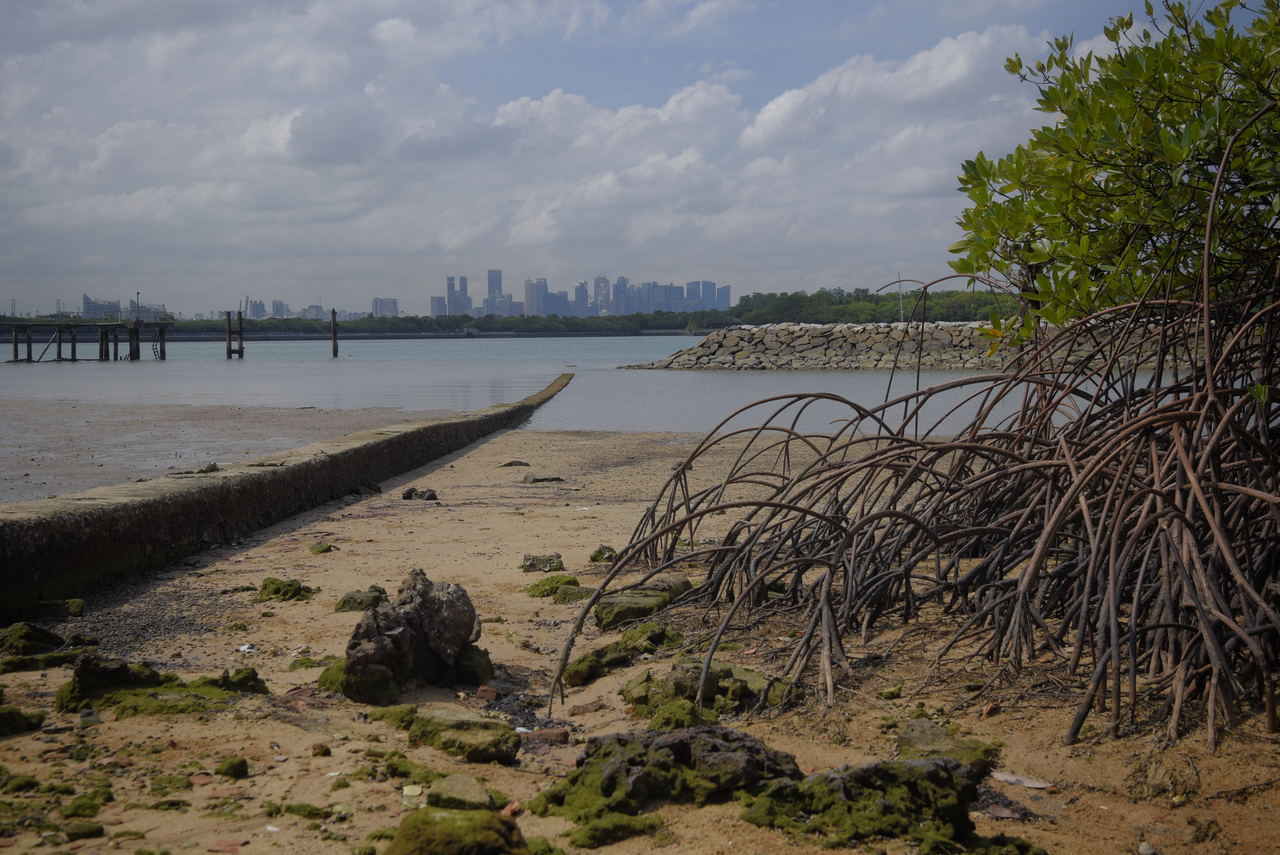ST climate change webinar: Mangroves, seagrass habitats at risk from rising sea levels, land development
Sign up now: Get ST's newsletters delivered to your inbox

Mangroves buffer the coastline from major storm events.
ST PHOTO: MARK CHEONG
Follow topic:
SINGAPORE - Rising sea levels do not just affect human settlements but also impact mangroves and seagrass habitats, which are at risk of being submerged.
Should that happen, it could potentially affect the ability of these natural habitats to "mitigate and adapt to climate change", said Dr Zeng Yiwen from the National University of Singapore's Centre for Nature-based Climate Solutions on Wednesday (April 21).
Speaking at The Straits Times' webinar on climate change, Dr Zeng said that mangroves and seagrass habitats are by nature very adaptable, so when the sea level rises, they can move further inland.
However, when the land behind these habitats is being developed, a barrier forms that blocks their inland progress.
Coupled with the potential for storm surges and change in hydrology, these habitats have come under threat, added Dr Zeng.
He was responding to a question by ST climate change editor David Fogarty on whether mangroves and other coastal ecosystems would be able to manage rising sea levels, from the current rate of 4mm a year to a possible 5mm future rise, given current emission projections.
Mangroves buffer the coastline from major storm events, being tree structures that stabilise the soil.
At the same time, they accrete and store sediment which allows them to grow in height over time and balance out any increase in sea level, said Dr Zeng.
Mangroves also play an important role in mitigating the effects of climate change.
"These habitats tend to be very good storers of carbon, so they're taking carbon dioxide through photosynthesis... and inserting it into the ground. They also store sediment and lock carbon in the ground.
"By reducing and sequestering some of this carbon, we actually sort of attack the main root of climate change (which is C02 emissions),"he said.
But there are more reasons for protecting these natural ecosystems.
Mangroves also support fisheries, which affect food production, and in turn, has an impact on people's lives, said Dr Zeng.
Professor Benjamin Horton, director of the Earth Observatory of Singapore at Nanyang Technological University and also a panellist at the webinar, said: "If we don't do anything about climate change, that rate (of sea level rise) will be 30mm per year in 50 years. There's not one engineering solution that can solve that. Your corals, your submerged aquatic vegetation and your mangroves will all go extinct."

